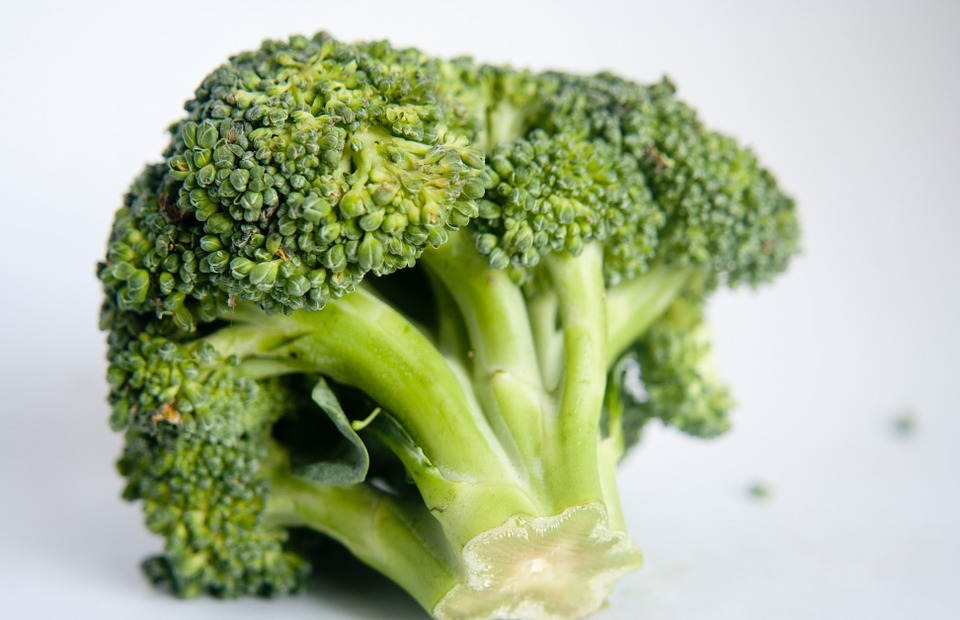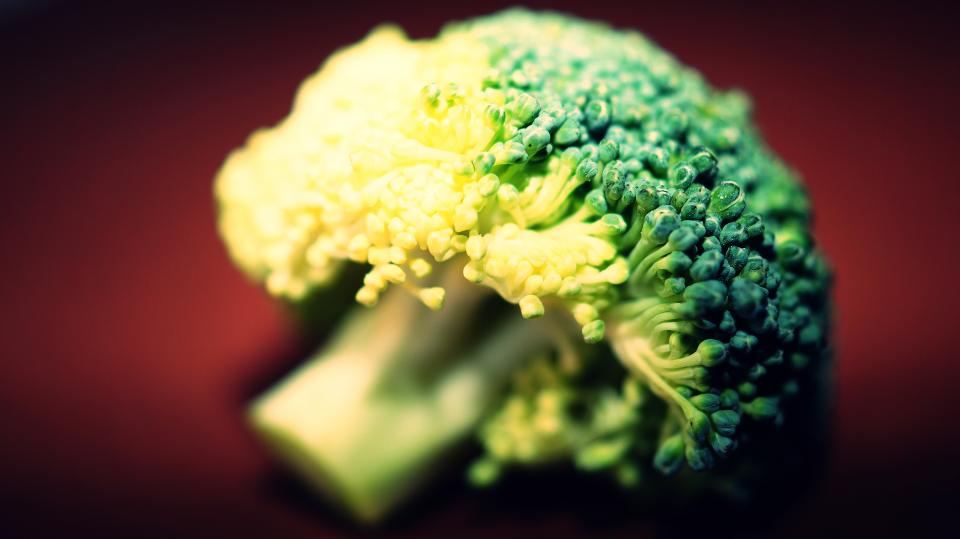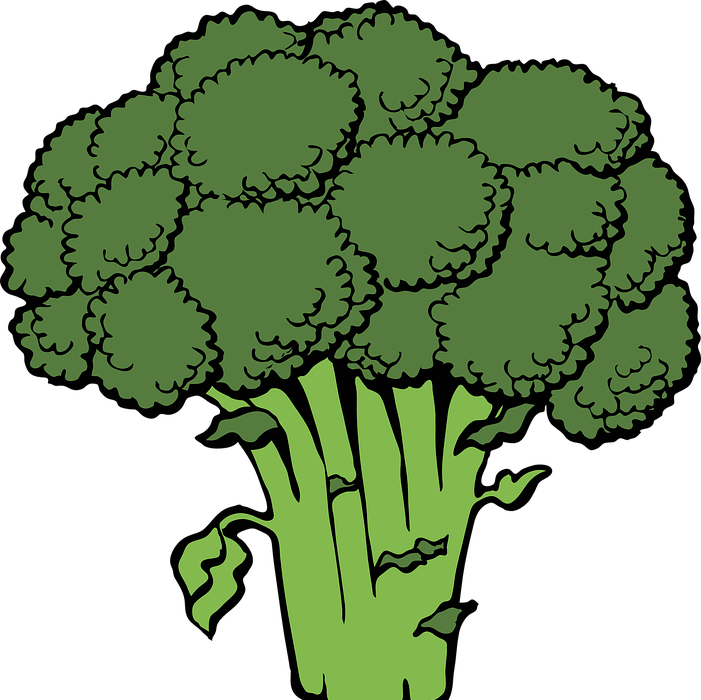This article will delve into the question of whether cats can safely eat broccoli and explore the implications of this vegetable on their diet. We will cover topics such as the nutritional benefits of broccoli, potential risks for cats, and the best ways to introduce this vegetable into their diet. Additionally, we'll discuss other suitable vegetables and provide a comprehensive guide to ensuring a balanced and healthy diet for your feline companion.
Part 1: Broccoli and Cats

1.1 Nutritional Content of Broccoli
- Broccoli is a nutritional powerhouse, boasting an impressive array of vitamins, minerals, and antioxidants. It's a rich source of vitamin C, an essential nutrient for immune function and wound healing.
- It is also a good source of vitamin K, which plays a crucial role in blood clotting and bone health.
- Broccoli is a valuable source of dietary fibre, aiding in digestive regularity and promoting a healthy gut microbiome. This fibre content is primarily composed of insoluble fibre, which does not break down in the digestive system and adds bulk to stool.
- Broccoli also contains folate, a B vitamin essential for cell growth and repair. Folate is particularly vital during pregnancy, as it plays a role in the development of the foetus.
- It is a good source of potassium, which is vital for regulating blood pressure and maintaining fluid balance.
- Broccoli also contains glucosinolates, compounds that have been linked to various health benefits in humans, such as reducing the risk of certain cancers. However, their effects on cats are not well understood, and further research is needed.
1.2 The Debate: Can Cats Eat Broccoli?
- Broccoli is not a natural part of a cat's diet, and they are obligate carnivores, meaning their bodies are designed to thrive on animal-based protein. Their digestive systems are not equipped to efficiently break down plant matter.
- Cats lack the necessary enzymes to digest cellulose, the primary component of plant cell walls, found in abundance in broccoli. This makes it difficult for them to extract nutrients from this vegetable.
- Broccoli contains fibre, which can be difficult for cats to digest and can lead to constipation, gas, and diarrhoea. The high fibre content can also interfere with the absorption of other nutrients, potentially leading to deficiencies.
- While some cats may tolerate small amounts of cooked broccoli, it should never replace their primary diet. Their nutritional needs are best met through high-quality meat-based foods.
1.3 Potential Risks of Feeding Broccoli to Cats
- Digestive Issues: Broccoli can cause diarrhoea, constipation, gas, and vomiting in cats. This is due to the high fibre content and the inability of cats to effectively digest plant matter.
- Choking Hazard: Raw broccoli florets can be difficult to chew and swallow for cats, potentially leading to choking. They can also be a choking hazard due to their size and shape. Even cooked broccoli should be finely chopped or mashed before offering to your cat.
- Toxicity: While broccoli itself is not toxic to cats, large quantities can lead to digestive upset and potentially affect their calcium absorption. This can be particularly concerning for kittens, as they require adequate calcium for bone growth and development.
- Nutrient Imbalances: Introducing a significant amount of broccoli to your cat's diet could create nutrient imbalances. A high fibre diet can interfere with the absorption of essential nutrients like protein and fat, leading to deficiencies.
Part 2: Understanding Feline Dietary Needs

2.1 The Importance of Animal-Based Protein
- Cats require high amounts of animal-based protein for muscle development, growth, and overall health. This protein provides essential amino acids, such as taurine, arginine, and methionine, which cats cannot produce on their own.
- Protein sources like meat, poultry, fish, and eggs are crucial for building and maintaining muscle mass, supporting the immune system, and promoting healthy skin and coat.
- A diet deficient in animal protein can lead to muscle wasting, stunted growth, and other health complications, such as a weakened immune system and skin problems.
2.2 Essential Nutrients for Cats
- Taurine: This amino acid is crucial for heart health, vision, and reproductive function. Cats cannot synthesize taurine, making it essential to obtain it from their diet.
- Arginine: Important for the immune system and wound healing. Arginine is involved in the production of nitric oxide, a molecule that plays a role in blood vessel dilation and immune response.
- Vitamin A: Essential for vision, skin health, and immune function. Vitamin A is also important for growth and development, particularly in kittens.
- Omega-3 Fatty Acids: These are vital for brain development, vision, and skin health. Omega-3 fatty acids also have anti-inflammatory properties, which can benefit cats with conditions like arthritis.
- Arachidonic Acid: This fatty acid is essential for skin health, wound healing, and immune function. It is particularly important for kittens, as it helps with brain development.
Part 3: Choosing the Right Cat Food

3.1 Commercial Cat Food
- Dry Food: This is a convenient and affordable option, but it tends to be higher in carbohydrates and lower in moisture. Dry food can also be more prone to dental problems due to its tendency to stick to teeth.
- Wet Food: Wet food is higher in moisture and protein, which is beneficial for cats, but it is generally more expensive. The high moisture content helps to keep cats hydrated, which is particularly important for older cats.
- Raw Food: Raw food diets are gaining popularity, but they require careful preparation and handling to avoid contamination. Raw food diets can provide a more natural diet, but it is essential to ensure that the food is properly balanced and safe to eat.
- Homemade Food: Preparing homemade food for your cat can be challenging and requires careful attention to ensuring a balanced diet. If you choose to feed your cat homemade food, it is essential to consult with a veterinarian to ensure that the diet meets all their nutritional needs.
3.2 Considerations for Choosing Cat Food
- Age: Kittens, adults, and senior cats have different dietary needs. Kittens require a diet rich in protein and calories to support their growth and development, while senior cats may need a diet lower in calories and higher in fibre to support their digestive health.
- Health: If your cat has any health conditions, you may need to choose a special diet. For example, cats with kidney disease may need a low-protein diet, while cats with urinary tract infections may need a diet that helps to acidify their urine.
- Ingredients: Look for food with high-quality animal protein, such as meat, poultry, or fish, as the first ingredient listed. Avoid foods with high amounts of fillers, such as grains or by-products.
- Quality: Choose food from reputable brands and check for certifications like AAFCO (Association of American Feed Control Officials). This certification ensures that the food meets the nutritional requirements for cats.
Part 4: Vegetables Suitable for Cats
4.1 Safe Vegetables for Feline Consumption
- Cooked Pumpkin: A good source of fibre, vitamin A, and antioxidants. Pumpkin can help to regulate digestion and promote a healthy gut microbiome.
- Green Beans: Low in calories and a good source of vitamins and minerals. Green beans can be a healthy addition to your cat's diet, but they should be cooked and finely chopped to prevent choking.
- Carrots: A good source of vitamin A and fibre, but should be cooked or grated to prevent choking. Carrots can help to improve vision and support digestive health.
- Sweet Potato: A good source of beta-carotene and fibre. Sweet potato is a good source of vitamin A and can help to promote healthy skin and coat.
4.2 How to Introduce Vegetables to Cats
- Start with small amounts of cooked and mashed vegetables. Introduce new vegetables gradually to minimize digestive upset.
- Mix them with your cat's regular food. Start by adding a small amount of vegetable to their food and gradually increase the amount as tolerated.
- Monitor for any signs of digestive upset. If your cat experiences any diarrhoea, vomiting, or other digestive issues, discontinue the vegetable and consult with your veterinarian.
- Gradually increase the amount if tolerated. If your cat tolerates the vegetable well, you can gradually increase the amount over time. However, remember that vegetables should never replace their primary diet, which should be high-quality meat-based food.
Part 5: FAQs
5.1 Can cats eat broccoli sprouts?
Broccoli sprouts are even more nutrient-dense than mature broccoli, boasting higher levels of vitamins, minerals, and antioxidants. However, they are still not recommended for cats due to their high fibre content and potential digestive issues.
5.2 Is it okay to give my cat raw broccoli?
It is not advisable to give your cat raw broccoli as it is difficult to chew and swallow, and can be a choking hazard. Additionally, raw broccoli is more difficult for cats to digest than cooked broccoli.
5.3 Can I give my cat broccoli as a treat?
Broccoli can be given as an occasional treat in small quantities, but it should not be a regular part of their diet. If you choose to give your cat broccoli, ensure it is cooked, finely chopped or mashed, and offered in moderation.
5.4 My cat loves broccoli, is that okay?
While some cats may enjoy the taste of broccoli, it doesn't mean it's healthy for them. Their preferences shouldn't override their nutritional needs. A balanced and appropriate diet is essential for their health.
5.5 How often can I give my cat broccoli?
It is best to avoid giving your cat broccoli altogether. If you do choose to give them a small amount, it should only be occasionally and in cooked, mashed form.
5.6 Should I consult with a vet before giving my cat broccoli?
It is always advisable to consult with your veterinarian before introducing any new food to your cat's diet. They can advise on safe and appropriate options and can assess your cat's individual needs.
Everyone is watching
-

Are Cat Ribs Flexible? Understanding Their Anatomy
CATS & KITTENSThis article delves into the fascinating world of feline anatomy, exploring the flexibility of cat ribs and ho...
-

Can Cats Eat Bananas? (Everything You Need to Know)
CATS & KITTENSThis article dives into the intriguing question of whether cats can safely enjoy the sweet, yellow fruit, bana...
-

Cat Lifespan: How Long Do Cats Live?
CATS & KITTENSThis comprehensive guide explores the factors influencing the lifespan of our feline companions, providing ins...
-

Can Cats Get COVID-19? What You Need to Know
CATS & KITTENSThis article will delve into the fascinating world of feline COVID-19 susceptibility. We'll explore whether ca...
-

Can Cats Eat Eggs? A Complete Guide to Egg Safety for Your Feline Friend
CATS & KITTENSWhen it comes to treating our furry companions, we all want to ensure we're doing what's best for them. Eggs...
